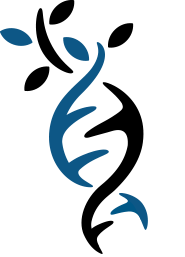Obtaining PDUs with your ORGANIC agility training
In the Project Management Institute (PMI) certification system, Professional Development Units (PDUs) are one-hour blocks of time that you spend learning, teaching others, or volunteering. By accumulating and tracking these over a three-year period you can maintain your certification status with the PMI. Read more at the PMI site.
ORGANIC agility® training and workshops can help you acculumate PDUs, up to 16 for a combination of ORGANIC agility Foundations and Masterclass. We list here the information about the training that you will need to use to claim your PDUs.
Overview
ORGANIC agility is a coherent approach to enabling resilience and helps you participants move towards an acceptance of complexity and a recognition of how to actually manage change. The first training day includes understanding the context, reason for existence, and framework of ORGANIC agility, the concept of resilience and what that means for organizational culture. We also introduces the ORGANIC agility framework and its five principles. The second half of the first training day includes a simulation that helps the participants practice and experience elements of ORGANIC agility such as creating adaptable and transparent strategy, effective decision-making, validating change in small increments, and focusing on value delivery. The second training day is the Masterclass and it includes a deeper dive into the theory behind ORGANIC agility, especially the ORGANIC Leadership framework, assessing leadership, and integrating complexity in decision-making. The Masterclass also looks more closely into organizational culture and understanding what it is and how to measure and change it. Finally, the Masterclass also teaches the practices of active and accelerated learning that our workshops use.
Learning Objectives (for the two days including the ORGANIC agility Foundations and Masterclass)
- Gaining an awareness of the current market situation and being able to describe market cycles and placing organizations and products in that context
- Understanding the shift from robustness to resilience (and the implication on risk management)
- Comprehending what cultural and organizational change looks like in practice and beginning to understand how it could apply to a participant’s specific organization as a journey and not a destination
- Understanding cultural awareness and coherence and the difference between coherence and alignment.
- Understanding the basics of sense-making and the importance of developing a coherent approach to decision-making
- Understanding the ORGANIC agility principles (and why principles are better than structures and processes for maintaining coherence)
- Understanding that ORGANIC agility works on a meta level (continuous improvement cycle, agile strategy map, continuous reorganization, cultural coherence, leadership behaviour and tools)
- Knowing what a value stream is and how it might be used to clarify the process of value delivery (at a surface level at this point)
- Introduction to a holistic conception of Leadership and an overview of different leadership styles and behaviors as part of organizational structure and culture
- Knowing the importance of gradual and validated change that ensures wide buy-in and participation in the organization and a basic understanding of the Agile Strategy Map as a relevant tool.
- Understanding of the underlying theory of ORGANIC agility, starting from the approach, the idea of principles as scaffolding and the leadership framework
- Going through the ORGANIC leadership framework, including its three dimensions and how these can lead to interventions
- An overview of the Cynefin framework including basic knowledge and an introduction to liminal Cynefin, dynamics, and applications to scaling and strategy (fractal Cynefin)
- Taking a deeper dive on methods supporting the ORGANIC Principles: Competing Values Framework, Value Stream Discovery, Competence Mapping, Agile Strategy Map
Breakdown
- Technical project management: 2 hours
- Leadership: 7 hours
- Strategic and Business management: 7 hours
 ORGANIC agility
ORGANIC agility